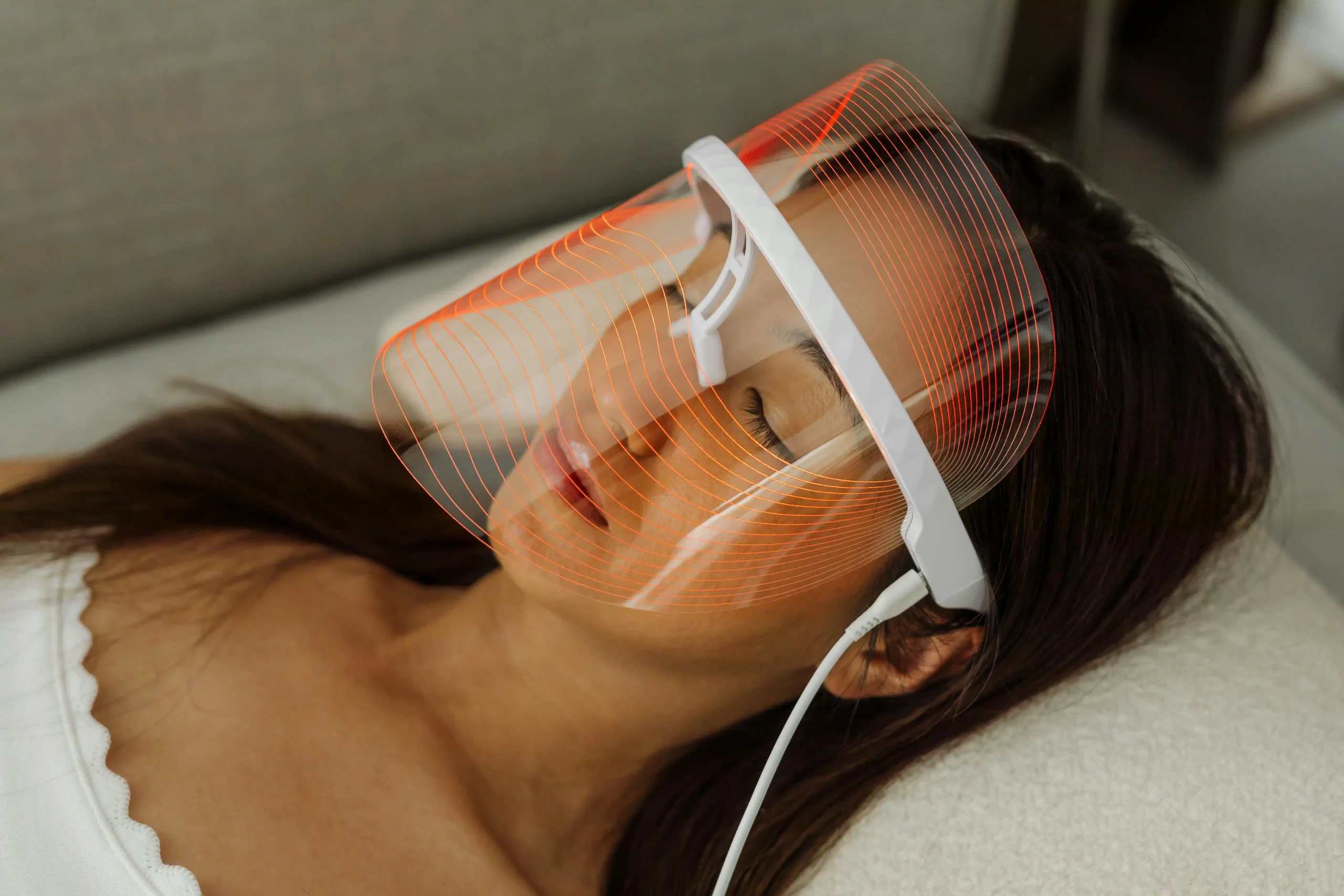What role do scent and pheromones play in our erotic lives? Are we, though we don’t fully realize it, addicted to the sense of smell like Jean-Baptiste Grenouille, the hero of “Perfume”? His unparalleled sense of smells and unique nose were both his curse. His desire to create the perfect perfume to reflect the scent of love locked in women’s bodies led him down a dark path of cruel crimes. Although he was a murderer, in one thing he was not wrong – our bodies have the power to addict with their scent. Pheromones. To what extent do they influence our love behavior? What role do they play in sexual attraction and reproduction in humans? Are pheromones the scent of attraction?
Table of Contents:
- What is the smell?
- What are pheromones?
- Let’s not mask our smell!
- The smell of sex
- Sexual attractiveness
- Partner selection is not a coincidence
- Jean-Baptiste Grenouille was an exception, however?
- Perfumes with pheromones: do they really work?
- What do perfumes with pheromones contain?
- The topic remains open…
What is the smell?
Fragrance is the result of a mixture of molecules. This is the reason why some people will smell rose, while others will smell jasmine: there are common molecules in the two fragrances. Our olfactory system will pick up this cocktail and then transmit the message to the brain. A person can distinguish hundreds of thousands of smells…. We are more or less sensitive to scents, but women are more receptive to them than men.
In addition, some body odors contain molecules that smell of nothing. These are pheromones. Irony? Unscented pheromones directly affect us.
What are pheromones?
They are attributed virtues worthy of love potions. They are a kind of invisible and irresistible messages and influence our choice of partners. We are instinctively and unrestrainedly attracted to or repelled by certain people. Could it be related to those famous volatile molecules called pheromones? How do they work and what impact do they have on our romantic relationships?
Pheromones are chemical molecules emitted by an individual that induce a certain behavior in another individual of the same species, especially in sexual behavior. “Their effect is that they can modify the behavior and physiology of the opposite sex: attract women, inhibit the sexual abilities of other men…. They allow a male mouse to “provoke” the abortion of a female fertilized by another male“- was written in the French popular science journal Science et Vie.
In addition to sex, pheromones would also be involved in recognizing one’s own family, the ability to “smell” a friend or foe, etc. According to some researchers, they can also be the cause of many human behaviors other than sexual, such as nepotism, struggle for dominance and even xenophobia. In short, pheromones are silent, invisible and volatile messengers between members of the same species. According to scientists, pheromones are imperceptible to the “naked nose,” being odorless. Nevertheless, pheromones are perceived by the organ that is the olfactory system and play a more decisive role in attraction and desire than any perfume. They are created and then sent outside the body to act on another person. These molecules can be found in skin, sweat, saliva, vaginal secretions and even urine or stool. Some of them are very unstable. Thanks to them, a butterfly can detect a sexual partner several kilometers away! “I have a relatively good sense of smell, and smell is key to my desire. I won’t be able to sleep with someone whose smell I don’t like. But it has nothing to do with smelling good or bad. It’s just the impact it has on me. I love the smell of my man’s sweat, for example, and yet I know he doesn’t smell like Chanel! “ – stated the 40-year-old woman.

Let’s not mask our smell!
Unlike “closed-circuit” substances such as hormones (adrenaline, serotonin, etc.), which remain in the body, pheromones escape through secretions (sweat, semen) or exhalations (breath). According to Linda Buck, a Nobel Prize winner for her work on the olfactory system, it may even be that constantly washing or hiding these social signals partly explains loneliness or depression in modern society. Placing perfumes that mask body odor (scented or not) is therefore not a good idea. This is also the opinion of perfume creator Daniela Andrier: the mistake, according to her, in the romantic-sexual olfactory field is precisely “wearing perfumes that are too strong and speak for themselves.” We will be attracted or repelled by someone according to their smells and/or perfume and/or a mixture of both. Sexually, scents play the role of an aphrodisiac or, on the contrary, slow down or even reject. Attraction, stimulation, and maybe even a feeling of falling in love are the effects of their action?
The smell of sex
There are as many scents on the planet that attract as there are different sensitivities. No wonder it’s the smell of sex that wins! Or is it because it evokes sensuality through pheromones? What is certain is that this fragrance hits the spot, although when far from the smell of roses … Its composition? Sweat, urine, semen, etc. Everything that is activated when we make love emits this smell with very special molecules. And since, depending on the person and their diet, the ingredients vary in part, we can enjoy endless variations as a bonus.
Sexual attractiveness
Men would be able to perceive the inevitability of ovulation in women through pheromones, and this would raise their testosterone levels. Male pheromones are, in turn, picked up by women.
A study conducted in 1980 by the University of Birmingham, involved spraying male hormone in the form of sweat on a seat in a waiting room. Women were more attracted to areas where male sweat had previously been deposited, while all men avoided it. Another study found that men were more sensitive to photos of women when their pheromones were present in the atmosphere.
According to an experiment conducted by University of Chicago researchers McClintock and Stern as part of a study of the so-called “Theory of the World. stationary school syndrome or menstrual synchrony, compounds taken from the armpits of young women at different times of the month can alter the length of other women’s menstrual cycles, compressing or lengthening cycles in predictable ways. Women release a complex bouquet of pheromones throughout the month, so synchronicity in roommates is possible, but by no means guaranteed. Another study would prove that men can also modify a woman’s cycle with pheromones.
Pheromones can potentially be used for fertility treatment and contraception. Moreover, it is important to remember that the pill would change our perception of these chemical messages (which implies a link between them and our reproductive system). In short, pheromones would play on desire, partner choice and perhaps reproduction and fertility.
Editorial recommends: Sapiosexuality – when intellect becomes foreplay.
Partner selection is not a coincidence
Pheromones would be an aid to finding a partner who maximizes genetic potential through MHC (Major Histocompatibility Complex). In love, we don’t really know whether to believe the saying “who looks alike, meets” rather than “opposites attract.” In pheromones, it’s much simpler: the second option prevails, at least for procreation. “In 2006, Christine Garver-Apgar and her colleagues at the University of New Mexico (Albuquerque) found that women prefer men whose major tissue compatibility complex, the one that allows the immune system to recognize antigens, is farthest from their“, wrote an article published in Futura Science. This only confirms Claus Wedekind’s 1995 study. What for? To improve the species! Because by choosing a partner who has “traits” opposite to our own, we promote genetic complementarity and make children stronger!
Jean-Baptiste Grenouille was an exception, however?
Although smell alters neuroendocrine balance in mammals, smell is modified by hormones in humans. Finally, human beings are not systems that instinctively adopt behavior in response to scent; they are individuals who reflect, make judgments and are subject to various motivations. If human sexuality is, as in other species, natural, it is also largely cultural. The human brain has many other things to manage, such as language, reasoning, etc. All of these also affect the perception of others and our sexual desire. That’s why some scientists don’t attribute the main role in our lives to pheromones. According to them, Homo sapiens pheromones don’t play as big a role as in our animal counterparts: when an ovulating female wild boar is exposed to a pheromone from the saliva of a male wild boar, she immediately immobilizes in a mating posture. “The additional olfactory system (or Jacobson’s organ) necessary for pheromone recognition is functional. Homo sapiens has the ability to process pheromone information, but their effect on sexual behavior is residual“, says Dr. Jacques Vergriete, a sexologist (in Sexologies, Volume 16, Issue 1, January-March 2007, pages 15-21).
The existence of pheromones and their influence on human sexual behavior cannot be denied. It’s just that it’s more limited than in other species, and for good reason: we are creatures with a sacred brain that has made our seduction multifactorial and highly complex. In addition to chemistry, there is alchemy and many other things (fashion, beauty, style, etc.). In this way, lust and love retain all their share of magic….
Perfumes with pheromones: do they really work?
The perfume industry uses truly sexual and animal notes such as spices, musk, leather or civet to create sensual scents. Some brands give their work very suggestive names, such as Etat Libre d’Orange and its Secretions Magnifiques. “As if the perfume would hold up over time, it must immediately announce its sexual nature” – says Jacques Waynberg, a sex therapist. Smell is one of the five senses possessed by humans. Thanks to the nose, we can smell all kinds of odors: the most delicious and the most unpleasant. In this respect, we are no different from Grenouille. Well, maybe he had a more “subtle” nose….
It is believed that perfume can create a connection with others, even to the point of causing sexual attraction. Pheromone perfumes are credited with a great power: sexual attraction. This hypothesis goes back to the 20th century, when we talked about desire between men and women because of the smell that emanated from it. It is believed that pheromone scents are involved in better perceived attractiveness. According to this concept, substances are sold with the promise of making you irresistible in the eyes of others. It’s an essence you save for special occasions, a lotion you don’t want to share, and one that may become your favorite. But are these fragrances really that effective at releasing attraction? The term “pheromone” is of Greek origin and means “to bring excitement.” The perfume industry uses the link between pheromones and sexual attraction to incorporate these qualities into their products and sell them as potions that make you fall in love. Some experts in the field suggest not talking about human pheromones, but about candidate pheromones.

What do perfumes with pheromones contain?
Pheromone scents concentrate copies of chemicals exhaled by humans. These elements are synthesized in the laboratory to turn them into cosmetic additives. More and more people are reaching for them. Advertising campaigns by brands revolve around seduction. Just spray a few drops of perfume on the neck and wrists. Perfumes are marketed as ideal aphrodisiacs to physically please the opposite sex when the vomeronasal organ catches them. Some people trust the talent of these products, but there are also those who question their ability to seduce. There are also those who believe that they do not cause any effect. Here are 3 reproductions of human “chemicals” most commonly used in perfumes:
Androstenone: is associated with the smell of urine and sweat. It is produced in the testicles and is believed to promote sexual attraction.
Androstenol: is present in men’s sweat, so it has been suggested as a possible human pheromone that can increase sexual arousal in women.
Androstandieone: women produce it in the ovaries and men in the testicles. It is a substance associated with identification of the opposite sex. It is assumed that when women ovulate and men perceive this pheromone, testosterone levels rise, promoting intimacy.
The topic remains open…
The debate over the veracity of human pheromones is becoming increasingly widespread. The chemical formula of some human pheromones would not always be determined. Some link the alleged influence of these substances to the promotion done by literature and cinema, which position them as a symbol of sexual attractiveness, romance and success in the search for a partner.
The journal Science has published the results of an experiment analyzing the likely effect of potential pheromones on changing gender perceptions. At the end of the investigation, this hypothesis had not been confirmed. Therefore, further research by the scientific community is needed to confirm that perfumes whose main ingredients are synthetic pheromones actually cause romance in couples.
It is said that love is a kind of chemistry between two people…. True or false?
Love is a natural force beyond our control. And just as we cannot command tornadoes, tsunamis or storms, we cannot command love. Pheromones can?
Read also: What should a partner be like for a GentleWoman?





